1. This Occurs During NON-Rem Sleep
 image source: reddit
image source: reddit
Sleepwalking, contrary to popular belief, predominantly occurs during non-REM (rapid eye movement) sleep stages. Non-REM sleep is characterized by slower brain activity, and it's during these phases that sleepwalkers experience episodes of wandering and other complex behaviors.
2. It's More Common In Children
 image source: reddit
image source: reddit
Sleepwalking is notably more prevalent among children, with statistics showing that up to 15% of children experience sleepwalking episodes at some point. While many children outgrow this behavior as they reach adolescence, some continue to sleepwalk into adulthood.
3. They Usually Last Just 30 Seconds
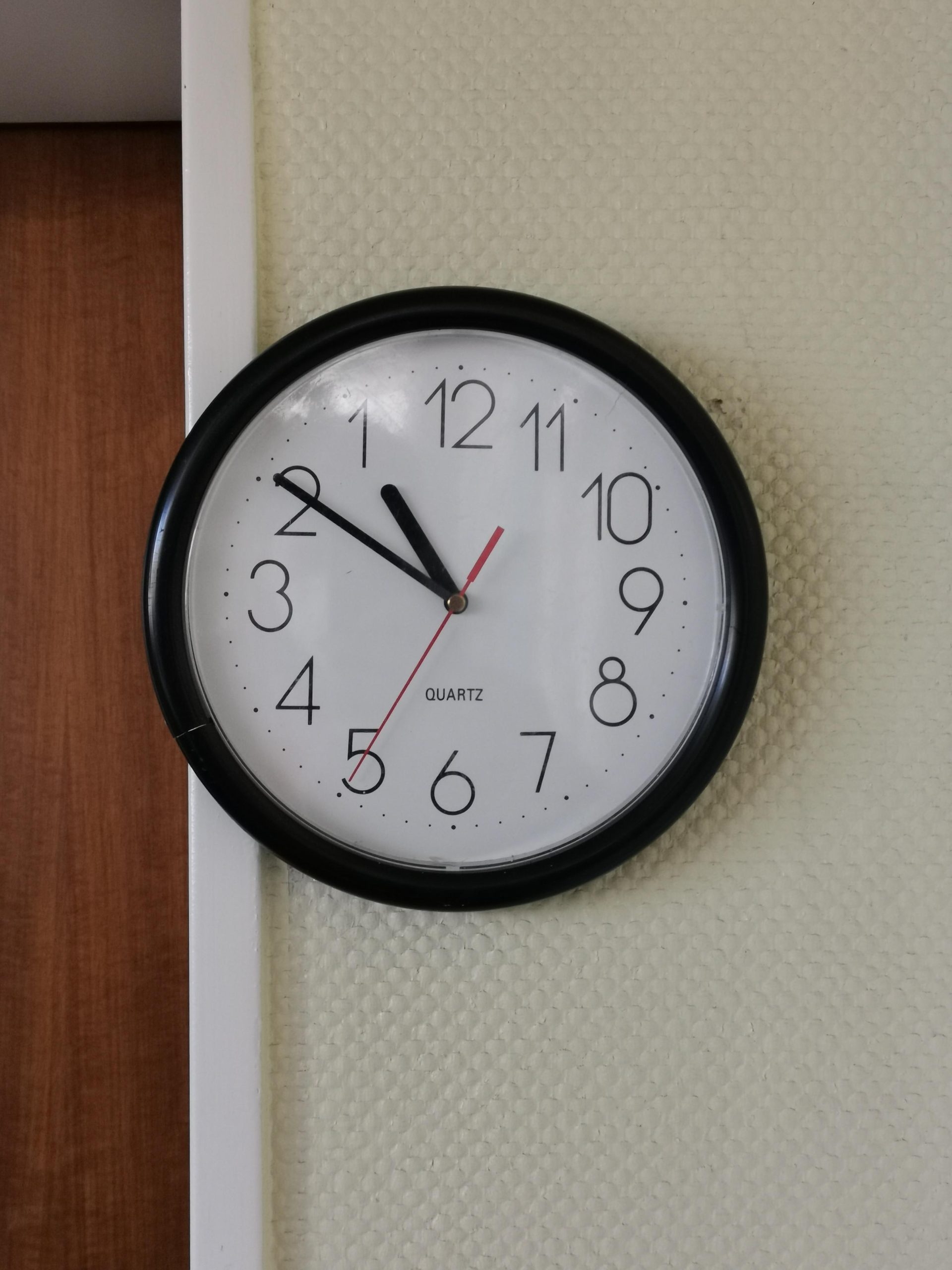 image source: Reddit
image source: Reddit
Sleepwalking episodes typically last just 30 seconds to a few minutes, although they can sometimes extend up to 30 minutes or longer. Despite the brevity of these episodes, they can result in significant disturbances to both the sleepwalker and those around them. You'd be lucky to spot anyone doing it!
4. Some People Walk And Talk
 image source: reddit
image source: reddit
Interestingly, some sleepwalkers engage in more complex actions beyond simply walking. It's not uncommon for individuals to talk, eat, or even perform routine tasks while in a sleepwalking state, often without any recollection upon awakening. That must be a little bit terrifying to see!
5. Some Have Even Drove A Car
 image source: BBC
image source: BBC
In rare and alarming cases, sleepwalkers have been known to engage in potentially dangerous activities such as driving a car while asleep. This poses serious risks not only to the sleepwalker but also to others on the road, highlighting the severity of sleepwalking behavior. That can't be safe for anyone!
6. They Don't Remember Anything Afterwards
 Image Source: Reddit
Image Source: Reddit
One of the most unsettling aspects of sleepwalking is that individuals typically have no memory of their actions upon waking. This lack of recollection can lead to confusion and distress, both for the sleepwalker and those who witness their behaviors. How terrifying must it be to wake up in some random place!
7. They Could Injure Themselves
 image source: reddit
image source: reddit
Sleepwalking can pose a significant risk of injury to the individual experiencing the episode. Sleepwalkers may stumble, fall, or collide with objects in their environment, leading to bruises, cuts, or more serious injuries. Many people have been known to have fallen down some stairs during their sleepwalks!
8. It Can Be Dangerous To Wake Them Up
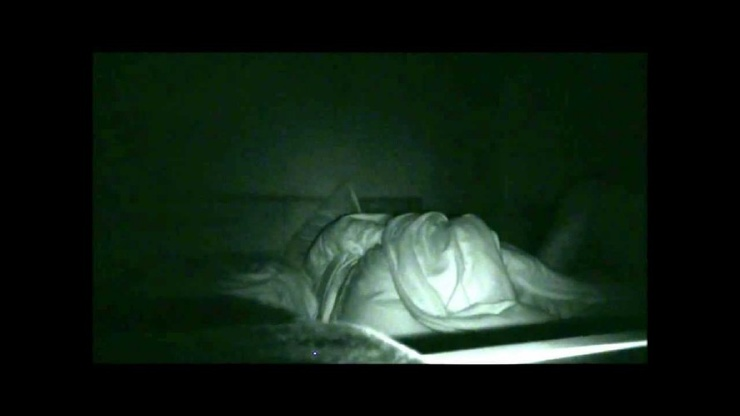 image source: reddit
image source: reddit
While it may seem instinctive to wake a sleepwalker during an episode, doing so can actually be dangerous. Abruptly awakening a sleepwalker can result in disorientation and agitation, potentially escalating the situation or causing harm to both the sleepwalker and the person attempting to awaken them.
9. It Usually Runs In The Family
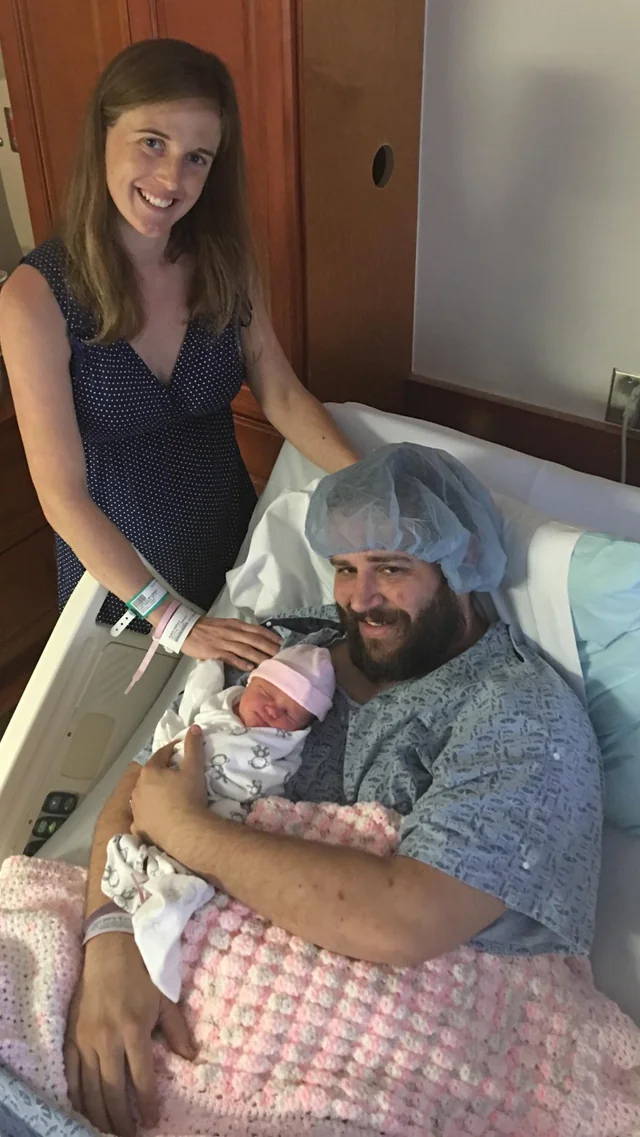 image source: reddit
image source: reddit
There is evidence to suggest that sleepwalking often runs in families, indicating a genetic predisposition to the condition. Individuals with a family history of sleepwalking are more likely to experience episodes themselves, highlighting the role of genetics in this sleep disorder.
10. Stress Can Increase The Chances Of Sleepwalking
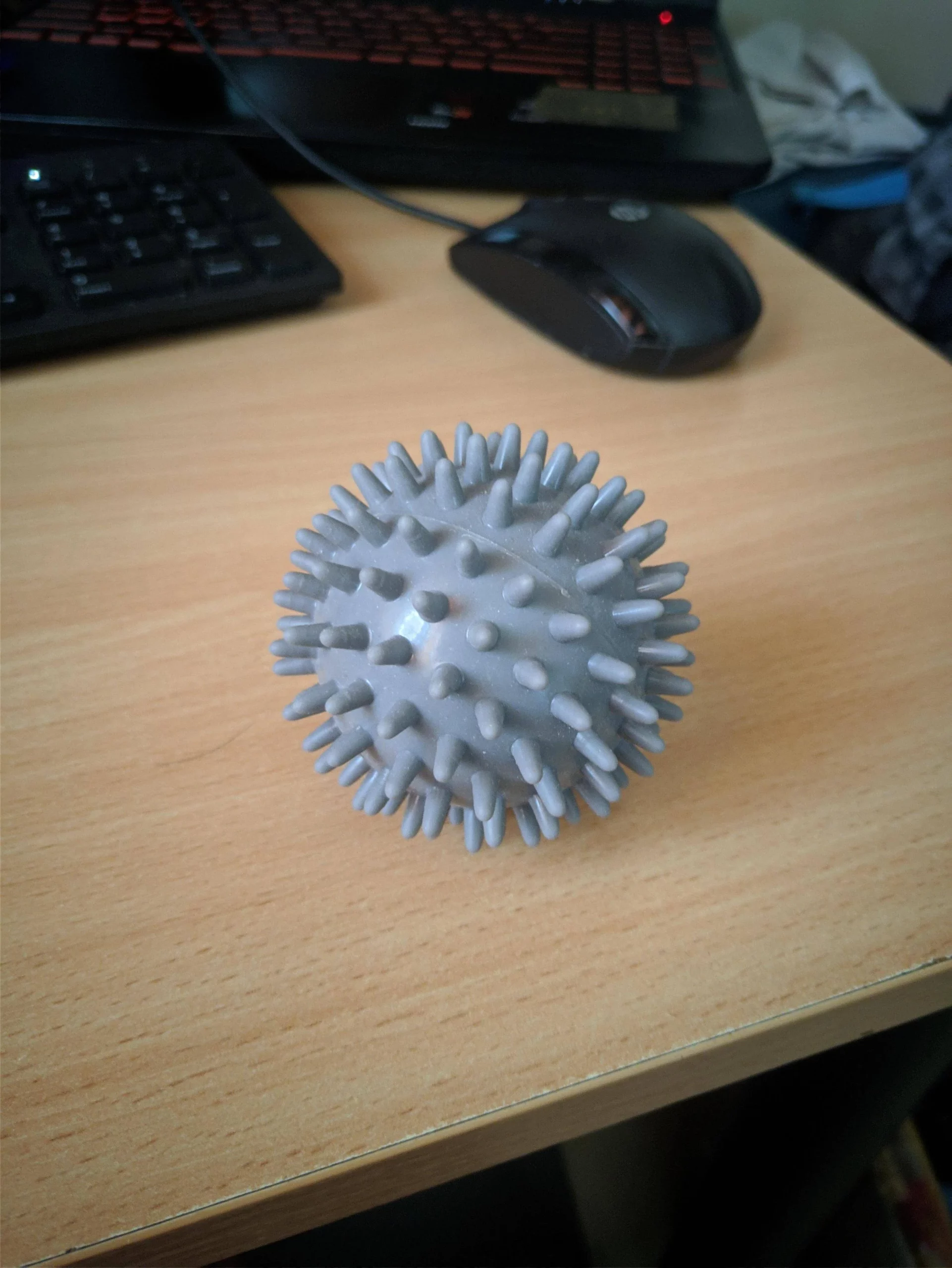 image source: reddit
image source: reddit
Stress and other psychological factors can significantly increase the likelihood of sleepwalking episodes. High levels of stress, anxiety, or emotional turmoil can disrupt normal sleep patterns and trigger sleepwalking behaviors, underscoring the complex interplay between mental health and sleep disorders.
11. So Can Depression!
 image source: reddit
image source: reddit
Depression, a pervasive mental health condition, has also been linked to an increased risk of sleepwalking. The emotional distress and disrupted sleep patterns associated with depression can exacerbate sleepwalking episodes, further complicating the management of both conditions.
12. Alcohol Consumption Might Cause It Too
 image source: reddit
image source: reddit
Alcohol consumption is another potential trigger for sleepwalking episodes. While alcohol initially acts as a sedative, it can disrupt the normal sleep cycle, leading to fragmented and disturbed sleep, which may increase the likelihood of sleepwalking occurring during the night.
13. If You Have A Sleep Disorder It Might Occur Too
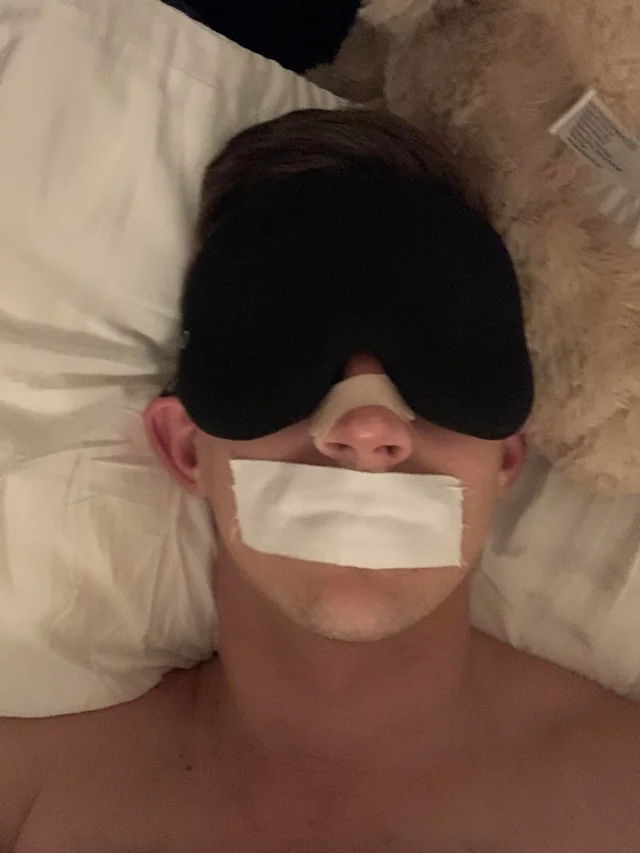 image source: reddit
image source: reddit
Individuals with pre-existing sleep disorders, such as sleep apnea or insomnia, may be at a heightened risk of experiencing sleepwalking episodes. These underlying sleep disturbances can disrupt the sleep cycle, making individuals more susceptible to engaging in sleepwalking behaviors.
14. It Could Cause Sleep Apnea
 image source: reddit
image source: reddit
Sleepwalking itself can also contribute to other sleep disorders, such as sleep apnea. The physical movements and disturbances associated with sleepwalking can disrupt normal breathing patterns during sleep, potentially exacerbating symptoms of sleep apnea and leading to further complications.
15. Or Insomnia!
 image source: reddit
image source: reddit
Similarly, sleepwalking can exacerbate insomnia, a condition characterized by difficulty falling asleep or staying asleep. The disruptive nature of sleepwalking episodes can lead to fragmented sleep, worsening insomnia symptoms and perpetuating a cycle of sleep disturbance.
16. It Can Be Triggered By Noise
 image source: reddit
image source: reddit
External stimuli, such as noise, can act as triggers for sleepwalking episodes. Loud noises or disturbances during sleep can disrupt the normal sleep cycle, potentially prompting a sleepwalker to engage in wandering or other behaviors. You might want to try and find a way to keep your bedroom quiet!
17. It Can Be Made Worse When In Unfamiliar Places
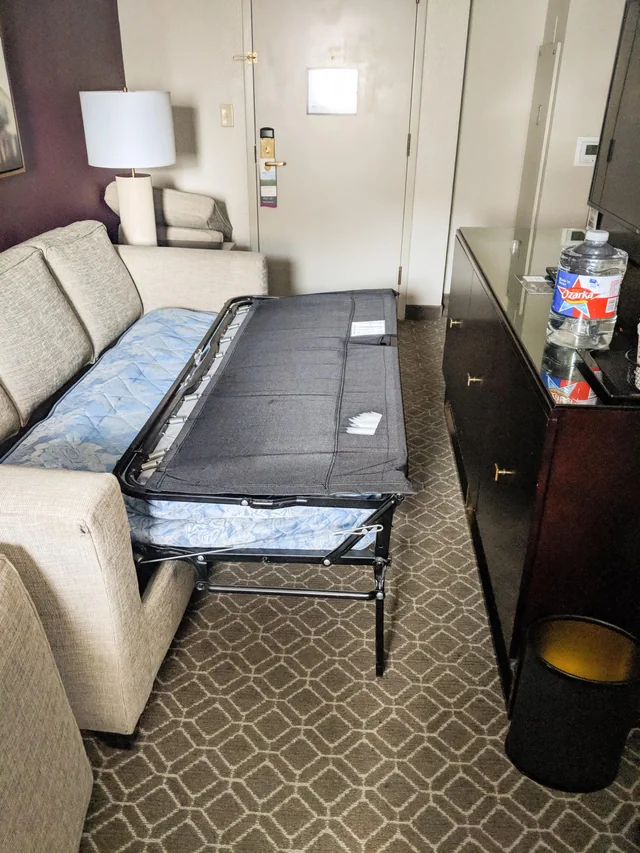 image source: reddit
image source: reddit
Sleepwalking episodes may be more likely to occur when individuals are in unfamiliar places or environments. The disorientation and confusion associated with being in an unfamiliar setting can increase the risk of sleepwalking behaviors, highlighting the importance of maintaining a consistent sleep environment
18. They Can Make You Violent
 image source: reddit
image source: reddit
In rare cases, sleepwalking episodes can involve violent or aggressive behaviors. While most sleepwalkers engage in harmless actions during episodes, some individuals may exhibit aggression or violence, posing a risk to themselves and others. Understanding and addressing the underlying factors contributing to sleepwalking is crucial in managing and mitigating these potentially dangerous behaviors.
19. A British Girl Was Found On Top Of A Crane!
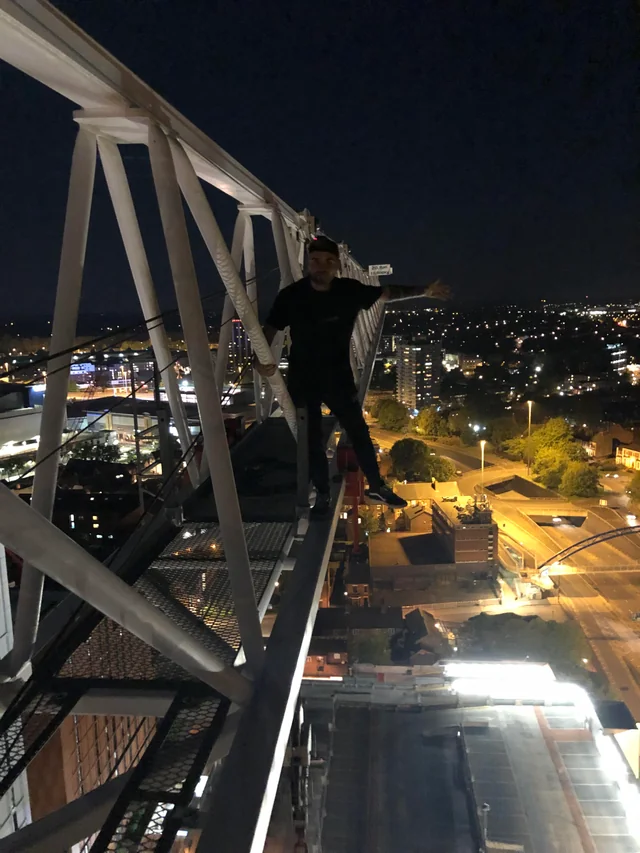 image source: reddit
image source: reddit
Back in 2005 a 15 year old girl was found fast asleep, curled up atop a crane 130ft in the air! This was weird enough as it was, until you find out that she managed to get there and scaled the crane all whilst she was actually still asleep. Her parents must've been terrified waiting for her to come down!
20. One German Teen Jumped Out A Window!
 image source: reddit
image source: reddit
Two years after the last point, a German teen actually stepped out the fourth-storey window and fell more than 10 meters to the ground. Despite this, when police found him he was actually still fast asleep! He had no recollection of falling out the window or feeling any pain after landing!
21. It Could Be A Sign Of Parkinson's
 image source: reddit
image source: reddit
Sleepwalking has been identified as a potential early symptom of Parkinson's disease, a progressive neurological disorder that affects movement and coordination. Research suggests that individuals who experience sleepwalking may be at an increased risk of developing Parkinson's later in life, highlighting the importance of recognizing and monitoring sleepwalking behaviors.
22. Antidepressants And Beta Blockers Can Make You Sleepwalk
 image source: reddit
image source: reddit
Certain medications, including antidepressants and beta blockers, have been associated with an increased risk of sleepwalking. These medications can affect neurotransmitter levels and disrupt normal sleep patterns, potentially triggering sleepwalking episodes in susceptible individuals.
23. It Can Make You Gain Weight!
 image source: reddit
image source: reddit
Sleepwalking may contribute to weight gain in some individuals. The disruption of sleep patterns and increased nighttime activity associated with sleepwalking can disrupt metabolic processes, leading to changes in appetite regulation and potentially contributing to weight gain over time.
24. It Could Ruin Your Work Life
 image source: reddit
image source: reddit
Sleepwalking can have significant implications for one's work life, particularly if episodes occur frequently or result in injuries. Sleepwalkers may experience daytime fatigue, impaired cognitive function, and decreased productivity, all of which can negatively impact job performance and career advancement.
25. Their Eyes Are Usually Open!
 image source: reddit
image source: reddit
Contrary to popular belief, the eyes of sleepwalkers are usually open during episodes. Despite appearing to be awake, sleepwalkers typically have a blank or glassy stare and may not respond to external stimuli, further adding to the eerie nature of the behavior. You can probably imagine how creepy that is!
26. It's Common In People With PTSD
 image source: reddit
image source: reddit
Sleepwalking is commonly observed in individuals with post-traumatic stress disorder (PTSD), a mental health condition characterized by persistent anxiety and distress following a traumatic event. Sleep disturbances, including sleepwalking, are prevalent among individuals with PTSD and can exacerbate symptoms of the disorder.
27. It Can Lead To Severe Headaches
 image source: reddit
image source: reddit
Sleepwalking can lead to severe headaches in some cases, particularly if the individual injures themselves during an episode or experiences disrupted sleep patterns as a result of the behavior. Chronic headaches can significantly impact quality of life and may require medical intervention for management.
28. Some People Wet Themselves!
 image source: quora
image source: quora
In addition to wandering and other complex behaviors, some sleepwalkers may experience nocturnal enuresis, or bedwetting. This can be particularly distressing for individuals, leading to embarrassment and impacting their quality of life. This can obviously be quite embarrassing for anyone who goes through it!
29. Some People Harm Themselves!
 image source: reddit
image source: reddit
Sleepwalking episodes can pose a risk of self-harm, particularly if the individual engages in activities that could lead to injury. Sleepwalkers may inadvertently fall, trip, or collide with objects in their environment, resulting in bruises, cuts, or more serious injuries. It's very dangerous, especially when they last prolonged periods!
30. It's Terrifying To Watch!
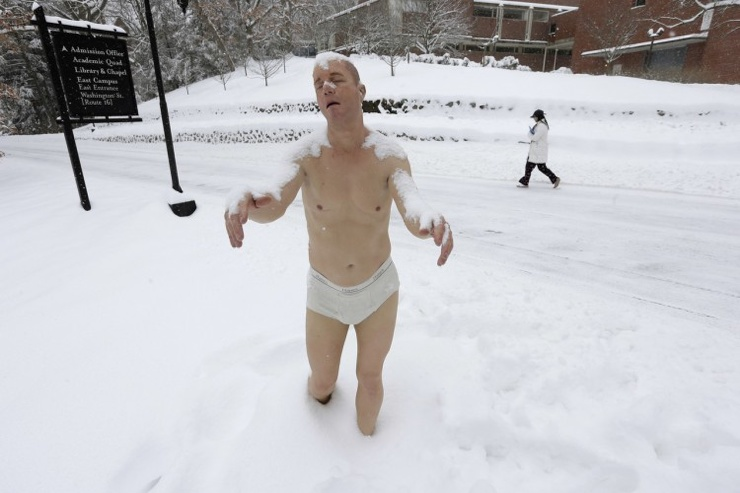 image source: steemit
image source: steemit
Witnessing a sleepwalking episode can be a terrifying experience, both for the sleepwalker and those around them. The sight of a seemingly awake individual engaging in bizarre behaviors while remaining unresponsive can evoke fear and confusion, underscoring the unsettling nature of sleepwalking.
Now Here Are Some Ways To Improve Your Sleep And Decrease The Risk Of Sleepwalking... 31. Stop Watching TV In Bed!
 image source: reddit
image source: reddit
Watching TV in bed may disrupt your sleep cycle and increase the risk of sleepwalking. The bright lights and stimulating content can interfere with your body's natural ability to wind down and prepare for sleep. Instead, reserve your bed for sleep and intimate activities to create a mental association between your bed and restfulness.
32. Turn Off Your Phones
 image source: reddit
image source: reddit
Turn off your phones and other electronic devices before bedtime. The blue light emitted by screens can suppress the production of melatonin, the hormone responsible for regulating sleep-wake cycles. By disconnecting from technology at least an hour before bed, you can promote better sleep quality and reduce the likelihood of sleepwalking episodes.
33. Make Your Bedroom Sacred
 image source: reddit
image source: reddit
Transform your bedroom into a sanctuary dedicated to sleep. Keep the room cool, dark, and quiet to create an optimal sleep environment. Invest in a comfortable mattress and pillows, and remove any distractions or clutter that may disrupt your sleep. You'll be amazed how much better you feel!
34. Create A Worry Journal
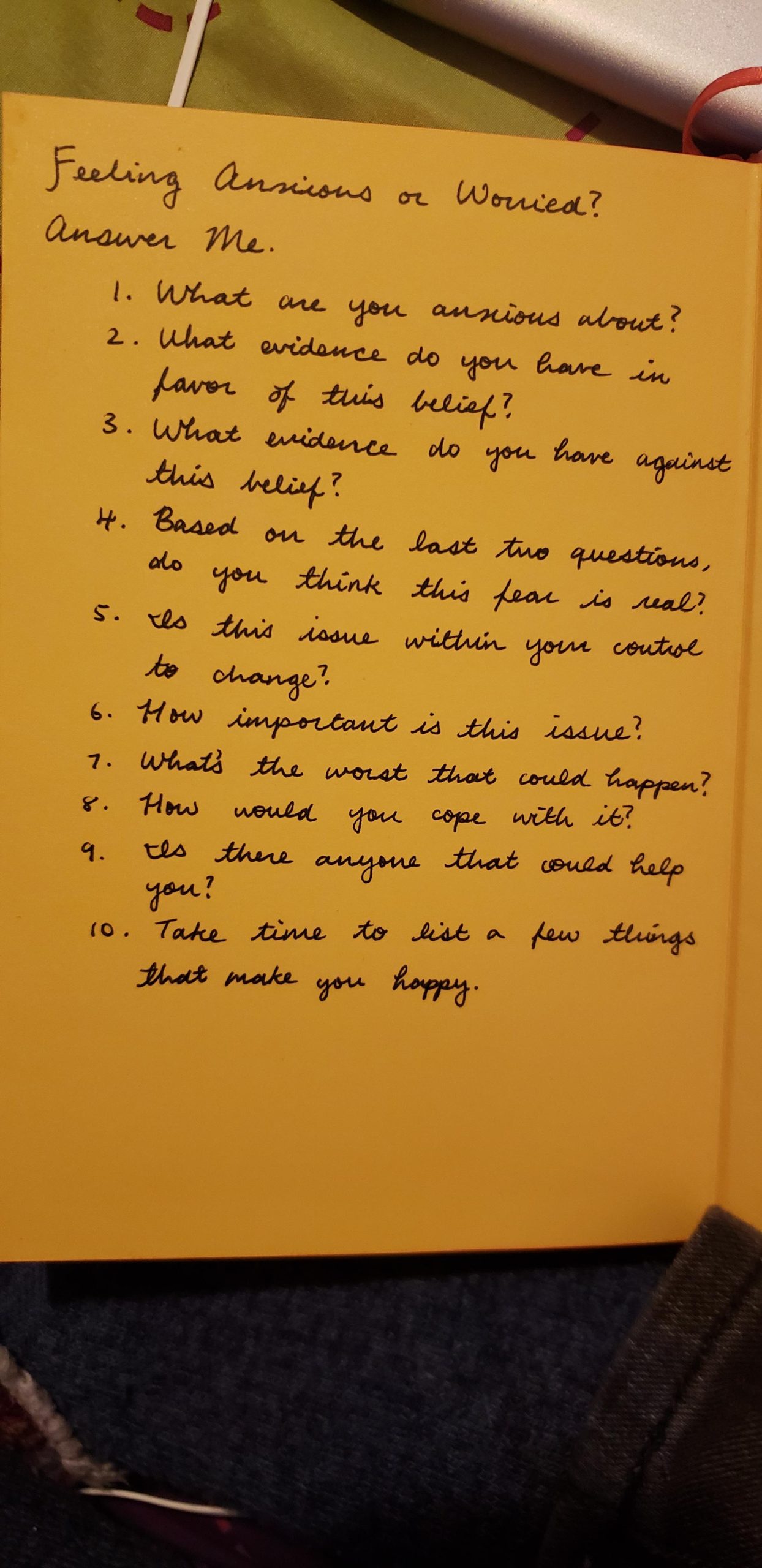 image source: reddit
image source: reddit
Consider starting a worry journal to help alleviate stress and anxiety before bedtime. Spend a few minutes each evening writing down your thoughts and concerns, allowing your mind to unload and relax. This practice can help ease your mind and promote a more restful night's sleep, reducing the risk of sleepwalking.
35. Try Meditating Before Bed
 image source: reddit
image source: reddit
Incorporate meditation into your bedtime routine to promote relaxation and calmness. Practice deep breathing exercises or guided meditation to quiet the mind and release tension from the body. Meditation can help reduce stress and anxiety, making it easier to fall asleep and decreasing the likelihood of sleepwalking episodes.
36. Have A Relaxing Bath
 image source: reddit
image source: reddit
Enjoy a warm bath before bed to relax your muscles and unwind from the stresses of the day. Adding soothing essential oils or bath salts can enhance the relaxation experience and promote better sleep quality. By incorporating a relaxing bath into your bedtime routine, you can prepare your body and mind for a restful night's sleep.
37. Don't Eat Before Bed
 image source: reddit
image source: reddit
Avoid eating large meals or heavy snacks close to bedtime, as digestion can disrupt your sleep and increase the risk of sleepwalking. Instead, opt for light, easily digestible snacks if you're hungry before bed. Eating too close to bedtime can also cause discomfort and indigestion, making it harder to fall asleep.
38. Avoid Caffeine
 image source: reddit
image source: reddit
Limit your intake of caffeine, especially in the afternoon and evening hours. Caffeine is a stimulant that can interfere with your ability to fall asleep and stay asleep. By avoiding caffeine-containing beverages like coffee, tea, and soda in the hours leading up to bedtime, you can promote better sleep hygiene and decrease the likelihood of sleepwalking.
39. And Alcohol!
 image source: reddit
image source: reddit
Similarly, avoid consuming alcohol close to bedtime, as it can disrupt your sleep cycle and increase the likelihood of sleepwalking episodes. While alcohol may initially make you feel drowsy, it can disrupt the quality of your sleep and lead to fragmented sleep patterns. Opt for non-alcoholic beverages in the evening to promote better sleep quality and decrease the risk of sleepwalking.
40. Avoid Spicy Foods!
 image source: reddit
image source: reddit
Spicy foods can cause indigestion and discomfort, making it harder to fall asleep and increasing the risk of sleep disturbances like sleepwalking. Avoid consuming spicy foods close to bedtime, especially if you're prone to acid reflux or heartburn. Instead, choose lighter, more easily digestible meals in the evening to promote better sleep hygiene and decrease the likelihood of sleepwalking episodes.
41. And Ice Cream!
 image source: reddit
image source: reddit
Indulging in ice cream before bed might seem like a comforting treat, but it could disrupt your sleep and increase the risk of sleepwalking. Ice cream contains sugar and fat, which can stimulate digestion and potentially cause discomfort or indigestion during the night. It's a nice treat every now and then though!
42. Keep Your Room Dark!
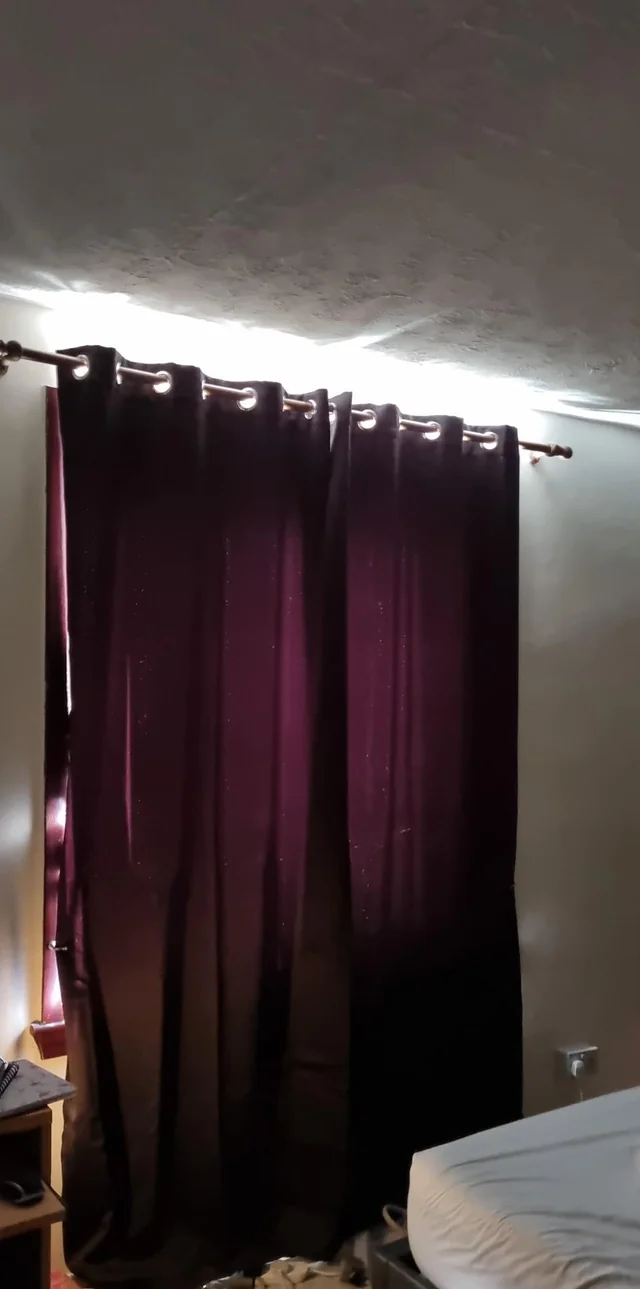 image source: reddit
image source: reddit
Keeping your room dark is essential for promoting restful sleep and reducing the risk of sleepwalking. Exposure to light, even small amounts from electronic devices or streetlights, can interfere with your body's production of melatonin, the hormone that regulates sleep. Invest in some blackouts!
43. Stop Smoking!
 image source: reddit
image source: reddit
Smoking cigarettes before bedtime can disrupt your sleep cycle and increase the risk of sleepwalking. Nicotine is a stimulant that can interfere with your ability to fall asleep and stay asleep, leading to fragmented sleep patterns and decreased sleep quality. Quitting smoking or avoiding cigarettes close to bedtime can improve your sleep hygiene and reduce the likelihood of sleep disturbances.
44. Exercise Regularly (But Not Before Bed)
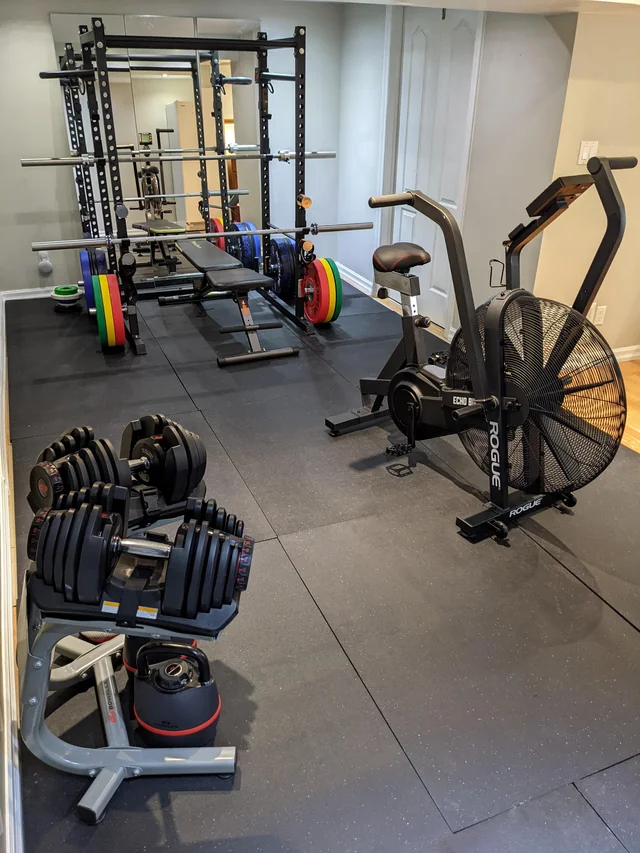 image source: reddit
image source: reddit
Regular exercise is beneficial for overall health and can improve sleep quality, but it's best to avoid vigorous exercise right before bedtime. Exercise raises your body temperature and stimulates adrenaline production, making it harder to wind down and fall asleep. Aim to finish your workout at least a few hours before bedtime to allow your body time to cool down and relax.
45. Get Comfortable Pillows
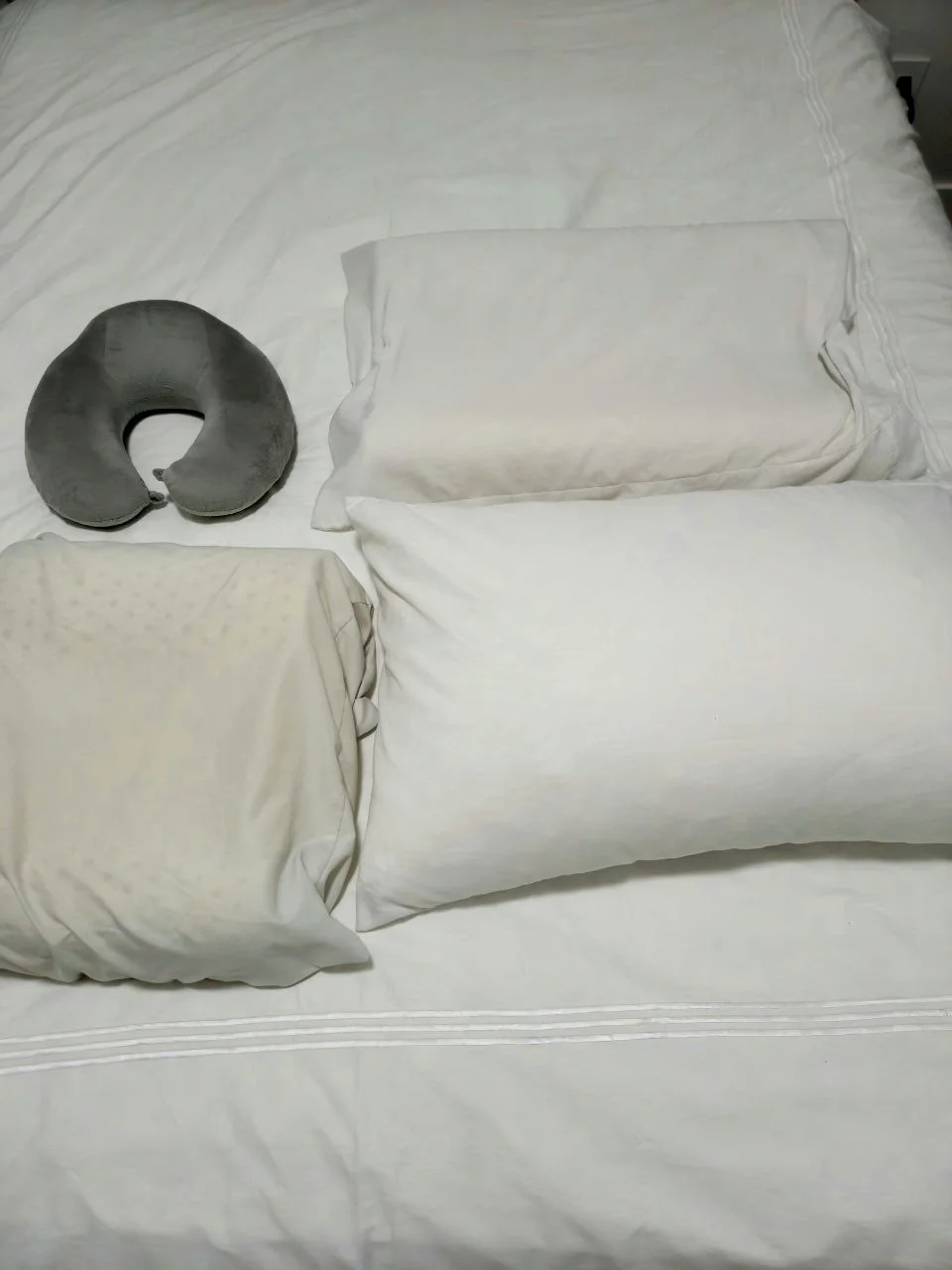 image source: reddit
image source: reddit
Investing in comfortable pillows can make a significant difference in promoting restful sleep and decreasing the risk of sleepwalking. Choose pillows that provide adequate support for your head and neck, and consider experimenting with different shapes and materials to find what works best for you.
46. Try Eye Masks
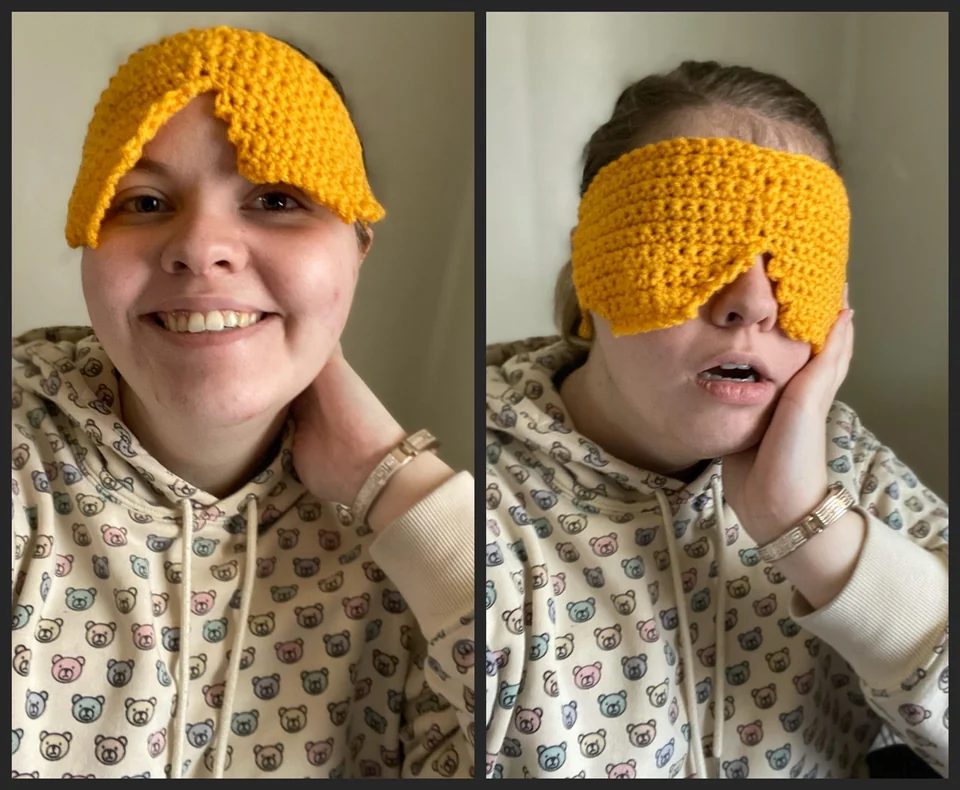 image source: reddit
image source: reddit
Using eye masks can help block out light and promote deeper, more restful sleep. Even small amounts of light can disrupt your sleep cycle and increase the risk of sleep disturbances like sleepwalking. By wearing an eye mask, you can create a dark, soothing sleep environment that enhances your overall sleep quality.
47. Keep A Sleep Diary
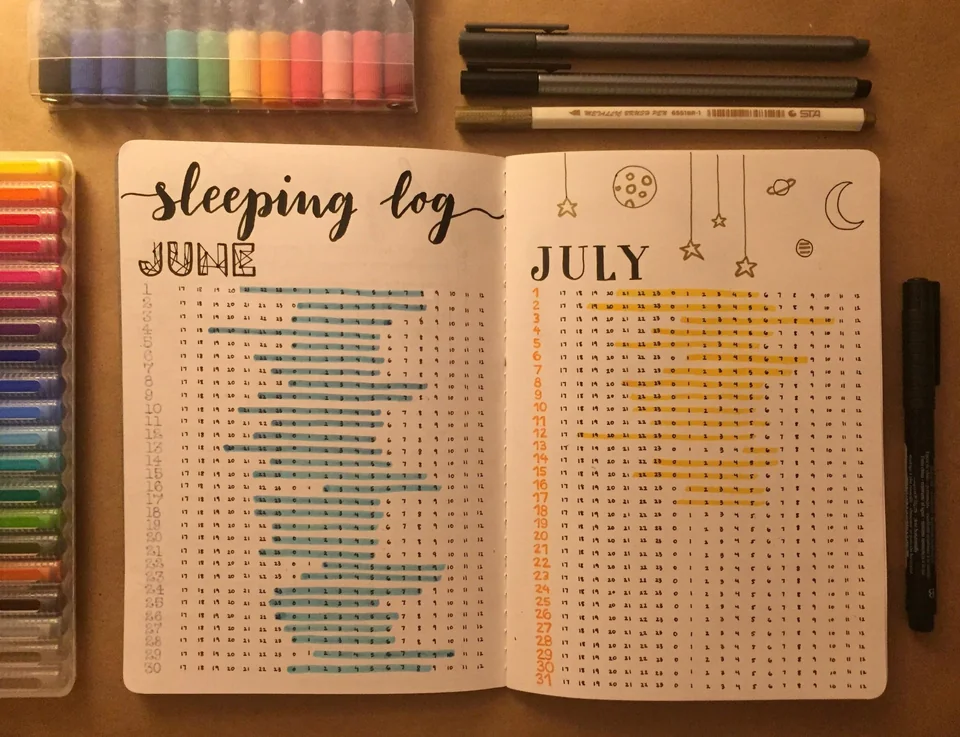 image source: reddit
image source: reddit
Keeping a sleep diary can help you track your sleep patterns and identify potential triggers for sleepwalking episodes. Record details such as bedtime, wake time, sleep quality, and any factors that may have influenced your sleep, such as stress or caffeine consumption. By tracking your sleep habits over time, you can gain insight into your sleep patterns and make adjustments to improve your sleep hygiene.
48. Listen To Calming Music
 image source: reddit
image source: reddit
Listening to calming music before bed can help relax your mind and body, making it easier to fall asleep and reducing the risk of sleep disturbances like sleepwalking. Choose soothing, instrumental music or nature sounds that promote relaxation and tranquility. Pick the music that suits you best!
49. Try Armoatherapy
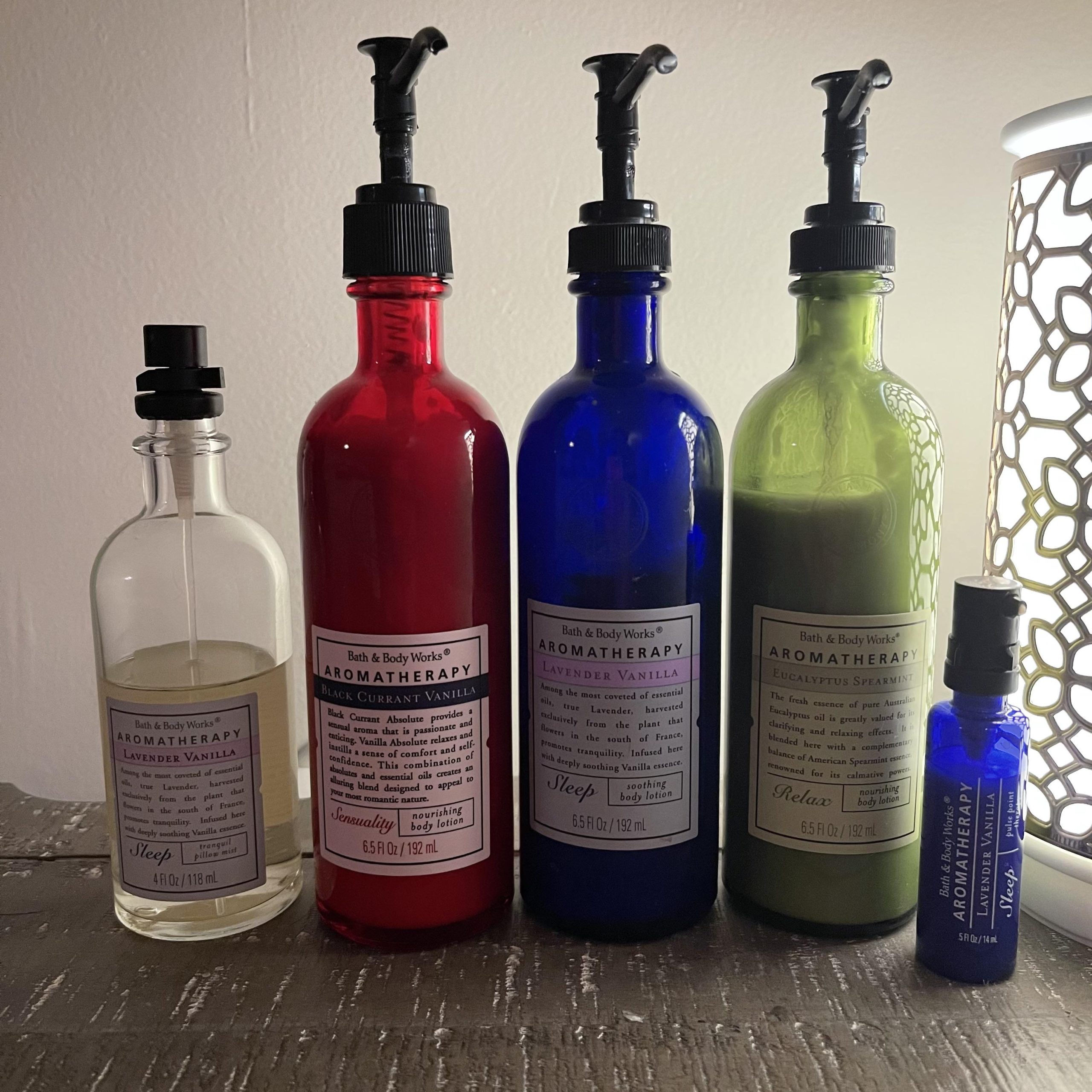 image source: reddit
image source: reddit
Aromatherapy involves using essential oils to promote relaxation and improve sleep quality. Scents like lavender, chamomile, and sandalwood have calming properties that can help reduce stress and anxiety, making it easier to fall asleep and decreasing the likelihood of sleepwalking episodes.
50. Avoid Large Meals
 image source: reddit
image source: reddit
Avoiding large meals before bedtime can help prevent discomfort and indigestion that may disrupt your sleep and increase the risk of sleepwalking. Eating a heavy meal close to bedtime can stimulate digestion and increase your body's metabolism, making it harder to fall asleep and stay asleep.
 image source: reddit
image source: reddit image source: reddit
image source: reddit image source: Reddit
image source: Reddit image source: reddit
image source: reddit image source: BBC
image source: BBC Image Source: Reddit
Image Source: Reddit image source: reddit
image source: reddit image source: reddit
image source: reddit image source: reddit
image source: reddit image source: reddit
image source: reddit image source: reddit
image source: reddit image source: reddit
image source: reddit image source: reddit
image source: reddit image source: reddit
image source: reddit image source: reddit
image source: reddit image source: reddit
image source: reddit image source: reddit
image source: reddit image source: reddit
image source: reddit image source: reddit
image source: reddit image source: reddit
image source: reddit image source: reddit
image source: reddit image source: reddit
image source: reddit image source: reddit
image source: reddit image source: reddit
image source: reddit image source: reddit
image source: reddit image source: reddit
image source: reddit image source: reddit
image source: reddit image source: quora
image source: quora image source: reddit
image source: reddit image source: steemit
image source: steemit image source: reddit
image source: reddit image source: reddit
image source: reddit image source: reddit
image source: reddit image source: reddit
image source: reddit image source: reddit
image source: reddit image source: reddit
image source: reddit image source: reddit
image source: reddit image source: reddit
image source: reddit image source: reddit
image source: reddit image source: reddit
image source: reddit image source: reddit
image source: reddit image source: reddit
image source: reddit image source: reddit
image source: reddit image source: reddit
image source: reddit image source: reddit
image source: reddit image source: reddit
image source: reddit image source: reddit
image source: reddit image source: reddit
image source: reddit image source: reddit
image source: reddit image source: reddit
image source: reddit